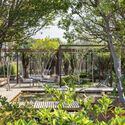A number of avian species are being sighted in areas that aren’t their native habitat. They’re also being seen in locations from which they’ve effectively disappeared in recent memory. Researchers have concluded that one of the primary reasons for this is climate change and more powerful storms that are blowing birds off course.
Flamingos and Limpkins
Two recent examples of displaced birds are flamingos in Florida and a limpkin that was positively identified in Barry County, MI. Limpkins are normally found in South Florida, Mexico, South America and the Caribbean. New York City residents were treated to a glimpse of a Painted Bunting in 1999 and again in 2015. Rarely seen north of Arkansas, Painted Buntings are a common sight in South Florida.
Diversified Plantings
It’s not just avians that are blown off course that require a diversification of food sources. Destruction of habitat continues unabated and even native species can have difficulty locating their preferred food. Planting native species in the landscape helps sustain local species and aids in supporting endangered species. South Florida’s subtropical climate offers conditions that are ideal for a great many types of plants, bushes, vines, and trees.
What to do With Displaced Birds
A great many displaced birds arrive in an unfamiliar area unharmed, but tired and in need of water and sustenance. Avians that feed on sea life will typically be able to find their own food.
Other species that consume seeds and nectar may have a little more difficulty if they don’t see plants with which they’re familiar. The birds will typically come to rest in a park or other environment that provides cover. After recuperating, they’ll typically try to return to their traditional areas. The first step is to positively identify the bird. A little research will reveal what they eat.
To assist the avians, individuals can try leaving some of the bird’s favorite food in a fairly open space where they can find it. There’s no guarantee that they’ll feed, but individuals will have the peace of mind knowing they did what they could to help a displaced bird.
Contact RCH Landscaping Today for a Free Estimate

